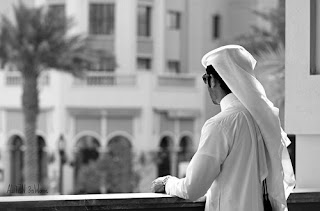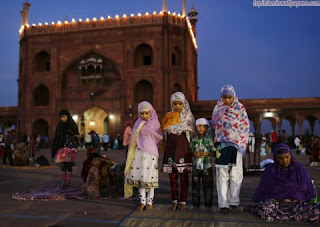Bismillah….
Assalamu Alaykum wa Rahamtullah wa Barakatuh….
Every time I saw
some family who live besides the road, along the river, in street my heart
broke in pieces how can they face such difficulties in life? Why they still smiling
despite of this hardship…Now I asked myself, ask yourself too why some of us
never contented for what we have, why some complained if he or she face some
problem in life brothers and sisters in Islam…. think million times how blessed
we are… some people don’t have shelter to rest, some don’t have water to drink,
no food to eat nor clothes to wear…Alhamdulillah they still struggle for their faith
for what they believing because deep in their heart they know all of this is a part
of a test how stronger their faith is. Allah loves those people who fight for His
sake… poverty can’t be a reason to lose our hope, our faith.
And We burden not any soul beyond its capacity, and with Us
is a Book that speaks the truth, and they will not be wronged. The Holy Quran
23:63
Whoever has trust in Allah, He is enough for him
Whosoever has Taqwa of Allah ‘fears Allah’ in whatever he
does, Allah will grant a way out of his difficulties.
Allah makes His matter easy for anyone who has Taqwa of
Allah ‘fears Him’
It’s shows that they only poor or lack in material things in
this word but spiritual their soul, their heart live only for their God, that
they never need anything in this life, they can accept any hardship, pain and difficulties
as long as they live for Allah for his creator no one can make them down even poverty.
POVERTY ….to Allah
means to have no need of anything or anyone except Allah. With this meaning,
the poor is not a person who is far from material things and without daily
food, but one who lives keeping constantly aware only needing Allah.
These are the words of Muslim. In one variant, "When
one of you sees someone who has been given more bounty in respect of wealth or
physical strength, he should then look at someone who has less than him."
And present to them the example of the life of this world,
[its being] like rain which We send down from the sky, and the vegetation of
the earth mingles with it and [then] it becomes dry remnants, scattered by the
winds. And Allah is ever, over all things, Perfect in Ability. Wealth and
children are [but] adornment of the worldly life. But the enduring good deeds
are better to your Lord for reward and better for [one's] hope. The Holy Quran 18:45-46
Some Hadith says:
Abu Hurayra(rRA) reported that the Messenger of Allah(PBUH),
"This world is the prison of the believer and the paradise of the
unbeliever." [Muslim]
Ibn 'Umar(RA) said, "The Messenger of Allah(PBUH, took hold of my shoulders and said, 'Be in this world as if you were a stranger or a traveller on the road.' Ibn 'Umar used to say, 'In the evening, do not anticipate the morning, and in the morning do not anticipate the evening. Take from your health for your illness and from your life for your death."[al-Bukhari]
They said in commentary on this hadith, that it means: do not rely on this world and do not take it as your homeland and do not persuade yourself that you are going to stay a long time in it nor be concerned with it nor attached to it except with the attachment of a stranger who desires to return to his people. Success is by Allah.
Brothers and sisters in Islam doesn’t matter what hardship we facing right now the matter is how many blessing we got every day. Some of us maybe lack on many things but doesn’t mean we’re not blessed. Just look everything surrounds you will find in your own eyes how much you are blessed in some other things so be thankful, be contented and be happy and say Alhamdulillah!!! Allahu Akbar… Allah love us and Allah always live in our heart us be strong, have faith and keep believing. May Allah be with us and guide us to the right way.Ameen

























